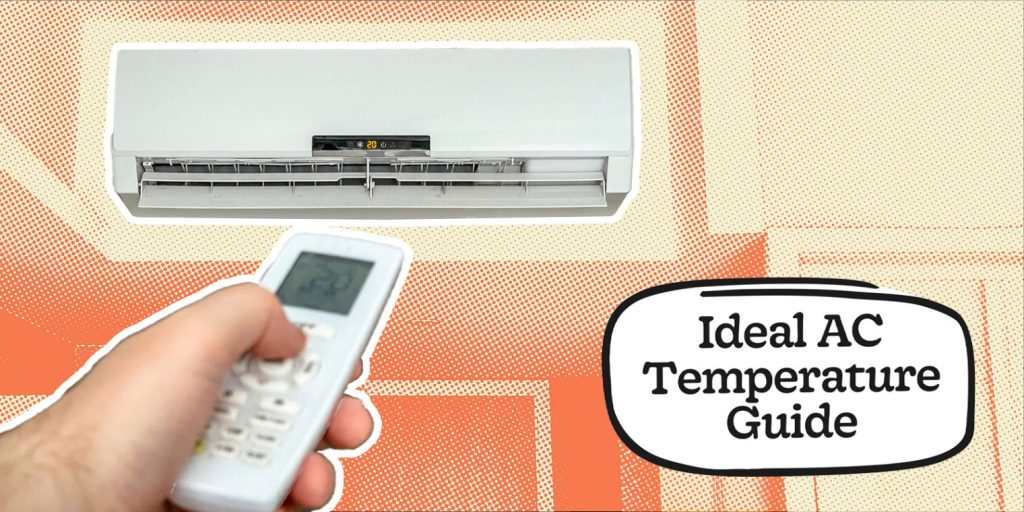Are you wondering what temperature to set your air conditioner for the best comfort and savings? Finding the perfect balance between staying cool and avoiding high energy bills can be tricky.
You want your home to feel refreshing without wasting power or hurting your wallet. You’ll discover the ideal air conditioner temperature that keeps you comfortable, saves energy, and helps your AC last longer. Keep reading to unlock simple tips that can transform the way you cool your space every day.

Credit: gulfshorecooling.com
Ideal Temperature Range
The ideal temperature for an air conditioner is usually between 72°F and 78°F. This range keeps rooms comfortable and saves energy. Setting the AC too low can waste power and raise bills.
Daytime Settings
Setting the air conditioner between 72°F and 78°Fkeeps rooms cool and comfortable. This range saves energy and avoids overworking the unit. Adjusting to higher temperaturesduring less active hours reduces power use. Using fans with the AC improves air flow and comfort.
Nighttime Adjustments
Lowering the temperature to around 75°F to 80°Fhelps with better sleep. Cooler nights mean less AC work, saving electricity. Using a timer or sleep mode sets the AC to turn off or raise temperature later. This balance keeps you cool without high bills.
Energy Efficiency Tips
Setting your air conditioner to around 78°F (26°C)helps save energy and keeps you comfortable. Programmable thermostats allow you to adjust temperaturesautomatically. This means the AC runs less when you are away or sleeping. You can program it to cool before you come home.
Using a programmable thermostat can reduce energy bills by up to 10-15%. It also helps avoid running the AC all day. Small temperature changes make a big difference in saving power.
- Set the thermostat higher when no one is home.
- Lower the temperature before you return.
- Use energy-saving modes if available.
- Keep the thermostat at a steady temperature.
Factors Affecting Temperature Choice
The size of the roomaffects how cool it gets. Big rooms need cooler settings. Good insulationkeeps cold air inside and warm air outside. Poor insulation means the air conditioner works harder.
Climate outside also matters. Hot and humid weather needs lower temperatures. Cooler climates allow higher settings for comfort.
- Room size:Larger rooms require lower AC temperatures.
- Insulation:Better insulation keeps the room cool longer.
- Outdoor climate:Hot weather demands cooler AC settings.
- Comfort:People like different temperatures based on their feelings.
Health Considerations
Setting an air conditioner too cold can cause health problems. It may lead to stiff musclesand cold-related illnesses. Try keeping the temperature above 72°F (22°C)to stay comfortable and safe.
Air conditioners also affect humidityand air quality. Low humidity can cause dry skin and throat irritation. Too high humidity encourages mold growth. Using a humidifieror dehumidifiercan help keep the air balanced.
Filters in air conditioners help remove dust and allergens. Clean filters regularly to improve air quality and protect your health.
Smart Temperature Control
Smart air conditioners offer easy controlthrough remote and app features. You can set the temperaturewithout moving from your seat. The app controllets you change settings from anywhere. This helps save energy by cooling only when needed.
Remote controls allow quick changes to fan speedand temperature. No need to get up or find the unit. Some models also show energy usageand filter statuson the app.
- Control AC from your phone or remote
- Set timers to turn AC on/off
- Monitor energy consumption easily
- Receive alerts for maintenance
:max_bytes(150000):strip_icc()/GettyImages-1748626414-b255f0a15e4d42ac9b034eac75408f58.jpg)
Credit: www.thespruce.com
Seasonal Adjustments
For summer cooling, set your air conditioner between 75°F and 78°F. This range keeps your home comfortableand saves energy. Using a fan can help spread cool air faster. Closing curtains blocks heat from sunlight. Avoid setting the temperature too low; it wastes power and can cause chills.
In winter, air conditioners can still help by using the heat mode. Set the temperature around 68°F to 72°F. Keep doors and windows closed to keep the warm air inside. Regular cleaning of filters improves efficiency. Using a lower temperature at night helps save energy.

Credit: www.healthkart.com
Frequently Asked Questions
What Is The Ideal Temperature Setting For Air Conditioners?
The ideal air conditioner temperature is 24-26°C (75-78°F). This range balances comfort and energy efficiency. It keeps rooms cool without overworking the AC unit, helping reduce electricity bills and environmental impact.
How Does Temperature Affect Air Conditioner Energy Use?
Lowering the temperature drastically increases energy use. Setting the AC too cold forces the unit to run longer. Maintaining a moderate temperature saves energy and prevents wear on the system.
Should Air Conditioner Temperature Vary By Season?
Yes, adjust AC temperature slightly based on season. In summer, 24-26°C is ideal. In milder weather, raising the temperature by a few degrees reduces energy consumption while maintaining comfort.
Can Temperature Settings Impact Air Conditioner Lifespan?
Yes, extreme low temperatures strain the AC system. Consistently setting the temperature too low causes more wear and tear. Moderate settings help extend the air conditioner’s lifespan and performance.
Conclusion
Choosing the right air conditioner temperature saves energy and money. Set it between 24°C and 26°C for comfort and efficiency. Avoid very low settings that waste power and strain the unit. Use a fan to help spread cool air evenly.
Remember, small changes make a big difference in bills and comfort. Keep your AC well-maintained for best results. Stay cool without overspending. Simple steps lead to a better home environment.
